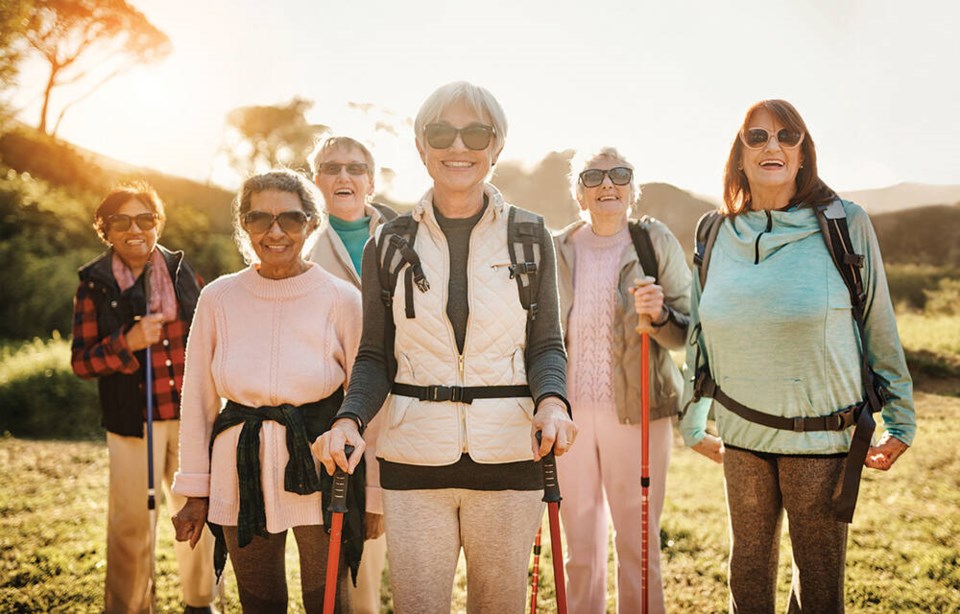Lifestyle
Embracing Seniors: Ageism Awareness Day Highlights Contributions and Challenges

On October 1, 2023, communities around the globe observed Ageism Awareness Day. This day serves as a crucial reminder to celebrate the invaluable contributions of senior citizens while also addressing the significant barriers they encounter in society. Columnist Margaret Coates emphasized the need for greater awareness of ageism and its impact on older adults.
Ageism, defined as prejudice or discrimination based on a person’s age, often leads to negative stereotypes and exclusion of seniors. The United Nations has recognized this issue, promoting initiatives to foster inclusivity and respect for aging populations. Coates highlighted various ways in which ageism manifests in everyday life, from workplace discrimination to limited access to healthcare services.
As society grapples with an aging population, the challenges faced by seniors become increasingly prominent. According to research from the World Health Organization, the number of people aged 60 and older is expected to reach 2 billion by 2050. This demographic shift underscores the urgency of addressing age-related biases.
Highlighting Contributions
Despite the challenges, seniors play a vital role in their communities. Many continue to contribute their skills and knowledge in various sectors, including healthcare, education, and volunteer work. Coates noted that recognizing these contributions is essential in combating ageism. Celebrating the achievements of seniors can help reshape societal perceptions and encourage intergenerational cooperation.
Moreover, seniors often serve as caregivers, providing support to family members and friends. Their life experiences offer invaluable wisdom, which can guide younger generations in navigating complex life situations. By acknowledging these strengths, communities can foster a more inclusive environment for all ages.
Addressing Barriers
Efforts to combat ageism must also involve addressing systemic barriers that hinder seniors’ full participation in society. Coates pointed out that age discrimination in the workplace remains a significant issue, with many older adults facing challenges in securing employment. According to a study by the Age Discrimination in Employment Act, nearly 65% of older workers reported experiencing age-related bias during job searches.
Healthcare access is another critical concern. Seniors often encounter ageist attitudes from healthcare professionals, leading to inadequate care. Initiatives aimed at training healthcare providers to recognize and counteract these biases are essential for ensuring that older adults receive the respect and care they deserve.
As Ageism Awareness Day encourages reflection and action, it serves as a call to society to challenge stereotypes and advocate for the rights of senior citizens. By fostering a culture of respect and inclusivity, communities can harness the potential of their aging populations, ensuring that every individual, regardless of age, is valued and supported.
In conclusion, Ageism Awareness Day is more than just a celebration; it is an opportunity to confront the misconceptions surrounding aging and to champion the rights and contributions of seniors. Through collective efforts, society can work toward dismantling ageism and creating a future where individuals of all ages can thrive.
-

 Science3 months ago
Science3 months agoToyoake City Proposes Daily Two-Hour Smartphone Use Limit
-

 Top Stories3 months ago
Top Stories3 months agoPedestrian Fatally Injured in Esquimalt Collision on August 14
-

 Health3 months ago
Health3 months agoB.C. Review Reveals Urgent Need for Rare-Disease Drug Reforms
-

 Technology3 months ago
Technology3 months agoDark Adventure Game “Bye Sweet Carole” Set for October Release
-

 World3 months ago
World3 months agoJimmy Lai’s Defense Challenges Charges Under National Security Law
-

 Lifestyle3 months ago
Lifestyle3 months agoVictoria’s Pop-Up Shop Shines Light on B.C.’s Wolf Cull
-

 Technology3 months ago
Technology3 months agoKonami Revives Iconic Metal Gear Solid Delta Ahead of Release
-

 Technology3 months ago
Technology3 months agoApple Expands Self-Service Repair Program to Canada
-

 Technology3 months ago
Technology3 months agoSnapmaker U1 Color 3D Printer Redefines Speed and Sustainability
-

 Technology3 months ago
Technology3 months agoAION Folding Knife: Redefining EDC Design with Premium Materials
-

 Business3 months ago
Business3 months agoGordon Murray Automotive Unveils S1 LM and Le Mans GTR at Monterey
-

 Technology3 months ago
Technology3 months agoSolve Today’s Wordle Challenge: Hints and Answer for August 19









